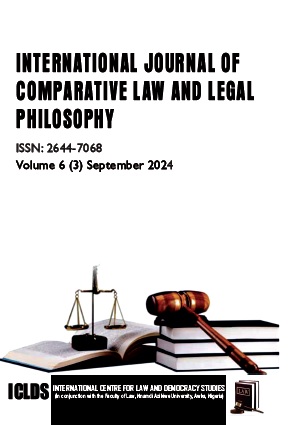THE GRAVITAS OF SPORTS AS WAR, DEPLOYING ARBITRATION AS A MEANS OF RESOLVING SPORTS DISPUTES
Keywords:
Sports, War, Arbitration, Dispute ResolutionAbstract
Gorge Orwell opined that sports historically served as a substitute for military conflict, (war) providing societies with a structured outlet for aggression and competition. Both war and sports demand strategy, discipline, teamwork, and an unrelenting drive to win; qualities that fuels rivalries, competition, and disputes, hence there is need to implore a non-kinetic method in resolving disputes arising from this cherished source of entertainment. This paper explores the role and challenges of arbitration in sports dispute resolution with a focus on both international and Nigerian contexts. It highlights the unique advantages arbitration offers to the sports sector including specialised expertise, global neutrality, confidentiality, and the promotion of inclusion and innovation. Through key case studies such as Webster v FIFA, FC Midtjylland v FIFA, and plethora of cases the paper demonstrates how arbitration helps balance complex issues involving contractual rights, regulatory compliance, and athlete protection. However, these cases also reveal ongoing concerns regarding fairness, transparency, and equal access to justice, particularly for underrepresented parties such as young athletes from developing regions. The paper further examines arbitration within Nigerian sports, illustrated by cases involving the Nigeria Football Federation and player contract disputes. These examples expose limitations such as forum shopping, judicial interference, and scepticism toward arbitral decisions. The courts’ recognition of arbitration agreements emphasizes the importance of internal dispute resolution but also points to the need for stronger institutional support and public trust in arbitration bodies. The conclusion underscores that while sports arbitration is a valuable tool for resolving disputes efficiently and fairly, significant reforms are needed to enhance its effectiveness in Nigeria. Recommendations include improving the independence and statutory recognition of the internal arbitral bodies within the Nigeria Football Federation, strengthening the capacity and credibility of sports arbitration institutions, increasing awareness and access to arbitration among athletes and stakeholders, and promoting greater transparency and inclusiveness in the arbitration process. Overall, the paper advocates for a stronger and more transparent arbitration system that promotes fairness, builds trust among stakeholders, and supports the effective resolution of sports disputes at both national and international levels.

